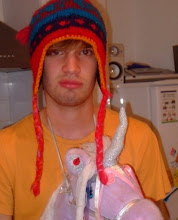
Considering the gig sold out well in advance, the Wedge is a surprising scene of calm, quiet, politeness tonight, with the huge capacity crowd completely entranced by a relatively tiny twenty year old and her acoustic guitar. The silence breaks in between songs for deserved applause but still every word of every crowd member can be heard. Shouts of ‘I love you Laura’ are so audible that they really do seem genuine, which leaves the young songstress in a predicament. ‘I never really know what to say when people …say things…just in life’ is the response to one such heckle, but despite confessing to having no ‘social awareness or comic timing’ she handles the banter with a reluctant yet charming sense of discomfort. Though she gets by with the chitchat, it’s obviously her music that stands out. For the majority of the set, she’s accompanied by drums, double-bass, cello, banjo and piano that fill out her sound enough to justify the sold out crowd. Above all the instrumentation however, Marling’s voice always dominates, cutting through the other instruments and powerfully covering a range that you wouldn’t expect if you were just to have a chat with her. The crowd knows most of the words but the sing-a-longs are almost whispered so as not to disturb what is emanating from the speakers. The only tracks that the audience may be unsure of are the three new songs, which still command the same perfect silence from the crowd, even when the band is reduced to just Marling and her guitar. Tracks like Failure and Ghosts stand out as much, if not more than full band numbers such as Devils Spoke.
Despite having had a Mercury nomination for each of her albums, she’s ambitious without any arrogannce. Before the penultimate song, What He Wrote, Laura claims that ‘for those who’d like an encore, this is our last song’. While it may sound tame the eerie calmness in the Wedge provided the perfect environment and neither the crowd, or Laura Marling would have had it any other way. For those who were happy to accept the end of a set without an encore, title track, I Speak Because I Can was the final song and was met by more rapturous applause and even some optimistic shouts of ‘encore’... She stuck to her word.








